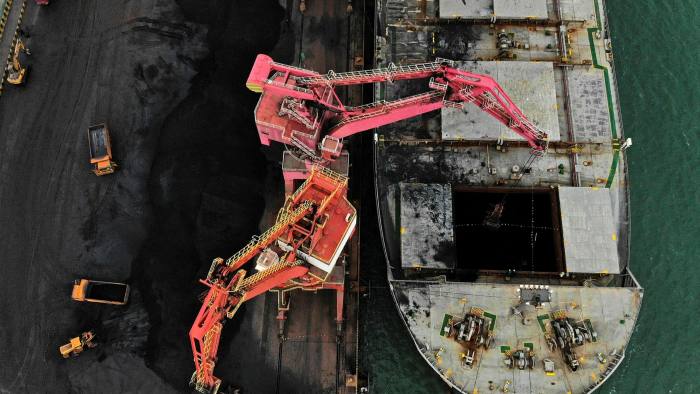Here is a brilliant illustration of our work on Totalitarianism - how in the final stages of Totalitarian Dictatorship "the primacy of politics" imposes itself and leads to economic ruin. This final stage started in China in 2012 with the accession of Xi to power. Before Xi, the Chinese Dictatorship had survived on "the mobilization of resources". But now "there ain't no more...they've taken everything..."
‘Politics come first’ as ban on Australian coal worsens China’s power cuts

Factories across China are falling silent and office workers are being forced to climb the stairs of high-rise buildings as a ban on Australian coal worsens a power shortage that is hitting everything from street lights to lifts.
In recent weeks, more than a dozen Chinese cities have imposed restrictions on electricity use as growing demand for energy owing to the country’s post-coronavirus economic recovery collides head on with a shortage of thermal coal. The shortage underscores the dilemma Chinese authorities face in balancing their muscular approach to international diplomacy with the needs of the economy.
Chinese energy and industrial groups have said the problem is partly due to an embargo on Australian coal imports, which many power plants in the country depend on, as tensions between Beijing and Canberra simmer.
“The import curb is enough to change the industry landscape,” said a director at China Huadian Corporation, one of the nation’s largest energy groups. “Many local power plants depend on Australian coal due to its higher efficiency and now they are having trouble finding an alternative.”
The problem has worsened as a rebound in China’s economy has gained momentum in the past few months.
Authorities in at least four Chinese provinces have recently asked residents and businesses to cut electricity consumption, according to public announcements.
We are not living a normal life when our factory can only work two days a week and the streets are dark at night
Officials in Hunan, central China, announced this month that government agencies would cut their electricity use and half of the province’s street lights would be turned off at night to tackle “tightening” power supplies.
Dozens of high-rise buildings in Changsha, the provincial capital, last week switched off power to their lifts, forcing workers to climb up to 20 flights of stairs to get to their offices.
“I've never had so much trouble going to the office,” said a Changsha-based office worker, who did not want to be identified because of the sensitivity of the subject. He was trapped in a lift for 40 minutes last week because of a power shortage.
Yiwu, a city in eastern China known for making products such as flags and badges, has not only switched off all its street lights during the evening but has forced factories to cut working hours by up to 80 per cent until the end of this year.
“We are not living a normal life when our factory can only work two days a week and the streets are dark at night,” said Mike Li, owner of a plastic flower factory in Yiwu.
Chinese authorities have blamed these problems on a combination of an unusually cold winter in parts of the country and high energy demand.
Power plants, however, said their operation had also suffered from the suspension of Australian coal imports.
Official data show Chinese plants obtained about 3 per cent of their thermal coal from Australia last year. The ratio, said an official at trade association the China Electricity Council, could exceed 10 per cent in more developed provinces that are drawn to the high quality of Australian coal.
“The import ban doesn’t make economic sense,” said the official.
China’s coal mines are also struggling to fill the shortfall because of tightening environmental regulations. Official data show China’s coal output rose 1.5 per cent year on year in November, compared with a 6.6 per cent gain in thermal power production in the same period.
That combination has hit energy supplies and sent prices soaring. Thermal coal inventories in Qinghuangdao, a big Chinese commodity port, are near a two-year low while prices have surged almost two-thirds since May, according to SunSirs, a consultancy.
That has forced many power plants to cut back on production, but some do not expect a resolution to the issue anytime soon given the parlous state of relations between Australia and China.
“We don’t expect the government to relax import control just because of the trouble it has caused,” said the official at Huaidan Corp. “Politics come first.”
No comments:
Post a Comment